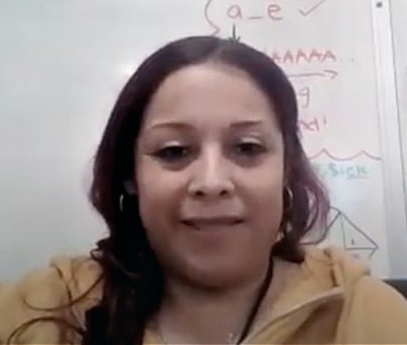CCA is proud to welcome four new members to our Board of Directors. They represent organizations that champion health equity, social justice, and workforce development. Their expertise in their respective fields, along with their commitment to the well-being of long-term care workers and the individuals they serve, will help guide our work of advancing the caregiving workforce.
Jennifer Schlesinger
Vice President, Healthcare Services & Professional Training, Alzheimer’s Los Angeles
Jennifer Schlesinger is the Vice President of Healthcare Services & Professional Training for Alzheimer’s Los Angeles, a nonprofit organization committed to supporting, educating, and empowering local families as they face the everyday challenges of dementia. Jennifer works on state-level advocacy to improve dementia care within healthcare, especially for lower-income older adults. She oversees technical assistance to healthcare systems to improve their dementia capability, professional training, and outreach to healthcare professionals. She oversees multiple nationally-recognized and award-winning projects, including the Dementia Cal MediConnect Project, a project transforming healthcare in the State of California for low-income older adults with dementia, and ALZ Direct Connect®, a care coordination program, which connects families dealing with dementia to Alzheimer’s Los Angeles.
Jennifer says, “Caregivers are our backbone. They do the most precious work in our families and communities and yet are often unrecognized and underappreciated. CCA is a vehicle to elevate caregivers and hold them up with the dignity and respect that they deserve.”
Jennifer is a founder of The ReelAbilities Film Festival Los Angeles, which is dedicated to promoting awareness and appreciation of the lives, stories, and artistic expressions of people with disabilities. In her free time, she continues to volunteer as a ReelAbilities steering committee member.
Carmen Roberts
Executive Vice President, SEIU 2015
Carmen Roberts is the first from-the-ranks SEIU 2015 member to be elevated to the position of Executive Vice President of the statewide union representing California’s long-term care workers. A longtime member of the union’s Bargaining Committee for Los Angeles County IHSS providers, Carmen has served on the union’s Executive Board for nearly a decade, and became a Regional Vice President for L.A. County in 2017, and most recently became the union’s very first statewide member leader for home care: First Vice President, Home Care Industry.
As Executive Vice President, Carmen draws on all her personal experience as a caregiver to this role. Carmen continues her commitment to building power and bringing structural change to the long-term care industry.
Carmen is looking forward to bringing that dedication to CCA as a board member. “Too many care providers don’t have enough access to the quality, affordable training necessary to provide the best possible care. As a former care provider, I’ll work with CCA to provide increased availability of training. That’s key to ensuring long-term care is recognized as a real career…where young people will say ‘I want to go into long-term care work’ like others choose engineering, medicine, and law,” she says.
Padmini Parthasarathy
Principal and Founder, Sāmya Strategies
Padmini Parthasarathy is a social sector leader with a deep understanding of the interconnectedness of health equity and economic, racial, and gender justice. She is committed to cultivating systems and structures that honor those interconnections. In 2021, Padmini founded Sāmya Strategies to more directly channel her passions and expertise toward these efforts.
“I am looking forward to learning more from CCA and my fellow board members about how to ensure quality jobs for direct care workers in California and working together to make that happen!,” she says.
Padmini has a proven record of success in advancing justice, equity, and well-being across philanthropy, the nonprofit sector, and local government. In addition to leading her consulting firm, she serves as the Bay Area Program Officer for Asset Funders Network. Prior to her current roles, she served as strategist for justice, equity, and learning and senior program officer for economic security at the Walter & Elise Haas Fund and as a program director at The California Wellness Foundation, overseeing statewide grantmaking to advance the Affordable Care Act and health care reform and promote employment and asset-building opportunities. Before that, Padmini was a program manager for Kaiser Permanente, where she managed its first nationwide Community Health Needs Assessment. She also led an initiative to incorporate asset building and social determinants of health approaches into maternal and child health programs for Contra Costa Health Services.
Zima Creason
Executive Director of the California EDGE Coalition
Zima Creason is the Executive Director of the California EDGE Coalition and President of the San Juan Unified Board of Education. At EDGE, her work seeks to address workforce shortages in high-road industries, create pathways to the middle class, and to advance shared prosperity for all Californians. She is committed to stakeholder empowerment and coalition building to establish and sustain thriving communities. Zima has worked in the policy field since 2001, and much of her work has focused on equity as it relates to mental health policy, as well as community outreach and engagement. She is dedicated to supporting people to avoid crisis outcomes, social justice, and for all Americans to have access and opportunity to achieve the American Dream, regardless of their zip code, culture, ethnicity, socioeconomic status, health/mental health status, gender identification, and/or who they love.
Zima is looking forward to making an impact on the long-term care workforce. “As a CCA board member, I am eager to champion the essential caregiver workforce that all Californians rely on. Their dedication not only improves the lives of those they care for but also uplifts the well-being of countless families, many of whom are part of the workforce. Together, we will enhance the value of caregiving and create pathways to economic advancement for this indispensable workforce,” she says.
These board members join our team of current CCA Board of Directors members Jeffrey Phillip Forrest of the Conrad N. Hilton Foundation, Kim Evon of SEIU 2015, Jim Mangia of St. John’s Well Child and Family Center, and Silvia Yee of the Disability Rights Education and Defense Fund.















